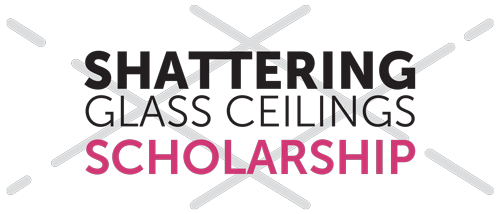In her own words
Busola Adeshina

Growing up in Lagos, Nigeria with a single mum, I was constantly exposed to atrocious living conditions. I grew up hearing that the solution to my country’s numerous problems was good governance, which sounds so simple but has proven elusive for decades. This elusiveness stems from the fact that the political landscape is a treacherous career path only accessible to a chosen few with social access, money, and prior political connections. As a child who grew up in poverty and saw how hard life was for my mother and the people around me, I struggled to accept that the only thing I could do was wait for a political intervention to achieve social change in my community.
After taking a few computer classes in high school, I began noticing the prospects of technology in achieving this social change. This also coincided with the emergence of the Sustainable Development Goals (SDGs) the United Nations set out to accomplish by 2030. Since then, my interest in the ways in which data can be utilized by data analytics and smart technologies to proffer solutions to the problems faced by people in the global south (such as poor health and healthcare access, pervasive poverty, inadequate and low-quality food, and many others) has only increased. My primary career goal is to contribute to the achievement of the SDGs, and I have spent the last couple of years researching and brainstorming the role of data as a key driver of the solutions needed to make the SDGs a reality. A Masters of Science degree in Public Policy Analysis and Management at Heinz College in Carnegie Mellon University is a huge step forward toward making my career dream come to fruition and providing me with the knowledge, skills, and access to the myriad resources needed to make it happen.
Driven by a strong passion for global change and desire for long-lasting impact, I joined the Microsoft Learn Student Ambassadors program in 2020 where I further developed my data analytics skills by learning PowerBI and Python. I also participated in the Microsoft ADC game of learners’ hackathon where my team built an application to provide quality education to children living in underdeveloped areas in Africa. I went on to become a peer mentor for new student ambassadors in the data analytics league for my region, where I helped new recruits advance in milestones and host global events to make an impact in their communities. Furthermore, I have since been an active participant in the Africa’s changemaker masterclass series for social innovators and young changemakers.
The disparities in access to quality healthcare, education etc. both within low and lower middle income countries (LMICs) like Nigeria, and in comparison to high income countries (HICs) only continue to grow, and there are many missed opportunities for leveraging data, technologies, and innovative approaches. My key driver remains, the desire to make social change and now, I have a more comprehensive view of the ways in which social problems like food insecurity, poor health, and poverty are connected and I strongly believe that the Public sector is particularly primed for the utilization of data analytics and intervening in policy analysis will have rippling effects on other social problems as better policies are formulated through evidence-based decision making.
In conclusion, the Masters in public policy analysis and management program at Heinz College is designed to teach the necessary analytical skills needed to excel in a multitude of data-driven careers in and drive change in various industries immediately after graduation, assures me that the program is the next step for me as it would be a massive stride in me achieving my career goals and long-term ambition for social impact in my community.
